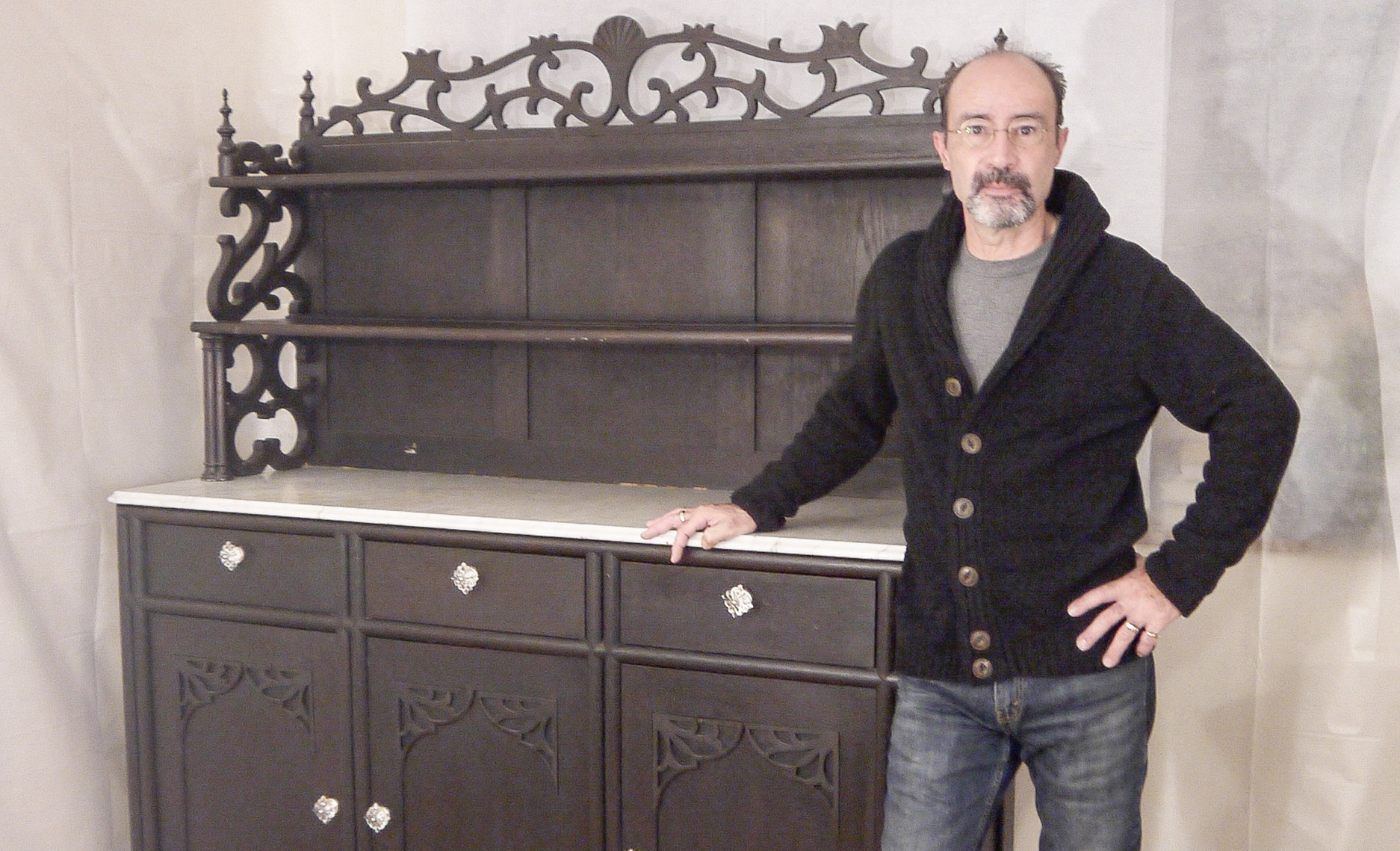Brian Doucette has purchased a lot of cool stuff over the years—antique Harley-Davidson motorcycles and Meiji-period Japanese panels and an 18th-century Jacopo Brandini violin he picked up for $200 and later sold for $9,000. But the item that has most captured his imagination—the one he has now spent 3,000 hours researching, trying to unlock its secrets—is a wooden hutch he bought from a random couple in 2016. “Anybody in antiques always says, ‘One day I’m going to find a Monet,’ ” Doucette says. “This is my Monet. This has been the quest.”
The hutch, which now sits in his front dining room, doesn’t look like a museum piece. Yet if Doucette is correct, this oddly proportioned old cupboard once rested against a wall of Franklin and Eleanor Roosevelt’s residence in the White House.
Doucette lives in a fishing village in Nova Scotia, which isn’t the first place you’d expect to find a hefty piece of furniture from 1600 Pennsylvania Avenue. But after putting in a lot of detective work, Doucette has a pretty plausible explanation for how such a piece might have ended up 1,000 miles from Washington.
The hutch came to Doucette by way of an American couple who had a vacation home not far from where he lives. They acquired it in 1975, when they got it as a wedding gift from a friend who was an antiques dealer in New York’s Hudson Valley—not far from the Roosevelts’ Hyde Park estate. Doucette has found documentation that after FDR’s death, Eleanor trucked a significant amount of furniture from the White House up to Hyde Park, and that some of it was surreptitiously sold off at one point by a family member. He now believes that the piece was custom-built for the Roosevelts’ White House residence by Val-Kill Industries, the upstate New York furniture factory that Eleanor cofounded in the 1920s.
Doucette bought the piece from the couple for about $270. Just a few weeks later, while he was at his job at a shipyard, his feet went numb, and within a few days the numbness had spread all over the lower half of his body. Unable to work and terrified, he poured himself into researching the hutch while waiting for doctors to figure out what was wrong. “It saved me—it really did,” says Doucette, who, as it happens, shares a birthday, January 30, with FDR. “I was sitting on the couch scared to death. The Roosevelt cupboard gave me something to do.” By early 2017, he had been diagnosed with multiple sclerosis.
The evidence Doucette has uncovered is compelling but far from conclusive. He managed to track down living relatives of several Val-Kill craftsmen, including master carpenter Otto Berge, and asked for photos of dovetail joints made by each one; Doucette thinks Berge’s joints closely match the ones on his hutch. He also believes that the hutch’s shorter-than-usual height suggests it was custom-made for the wheelchair-bound FDR so he could reach the top shelf. And he’s convinced that the piece’s decorative elements are based on a cast-iron railing and other aspects of the White House.
Then there’s the old spoon he found wedged behind a drawer, stamped with a monogram of some sort. Doucette compared it to an old inventory of Roosevelt household items that he found online, which mentions a four-piece salt-and-pepper-pot set in the form of a sundial. Could the stamp be a sundial, and this spoon have belonged to that set?
Well, maybe. Doucette has contacted a series of experts, whose reactions have ranged from enthusiastic to dismissive. He even struck up a correspondence with the Roosevelts’ granddaughter Nina Roosevelt Gibson, who has encouraged him in his search. But confirmation remains elusive. “He has a very interesting piece of furniture and a good narrative, but we don’t have anything in our records that would prove it was at the White House,” says Paul Sparrow, director of the FDR Presidential Library and Museum, who has been in touch with Doucette about the piece.
And so the quest continues. “You know, I love a good hunt,” Doucette says. “I have this passion to prove this.” Should solid evidence emerge—if, for example, a photo of the hutch were to be found in the FDR Library archive, which is currently closed due to the pandemic—then Doucette says he’d consider donating it to a museum: “It’s not about the money. This has been the hardest piece to crack. I just want to know I’m right.”















